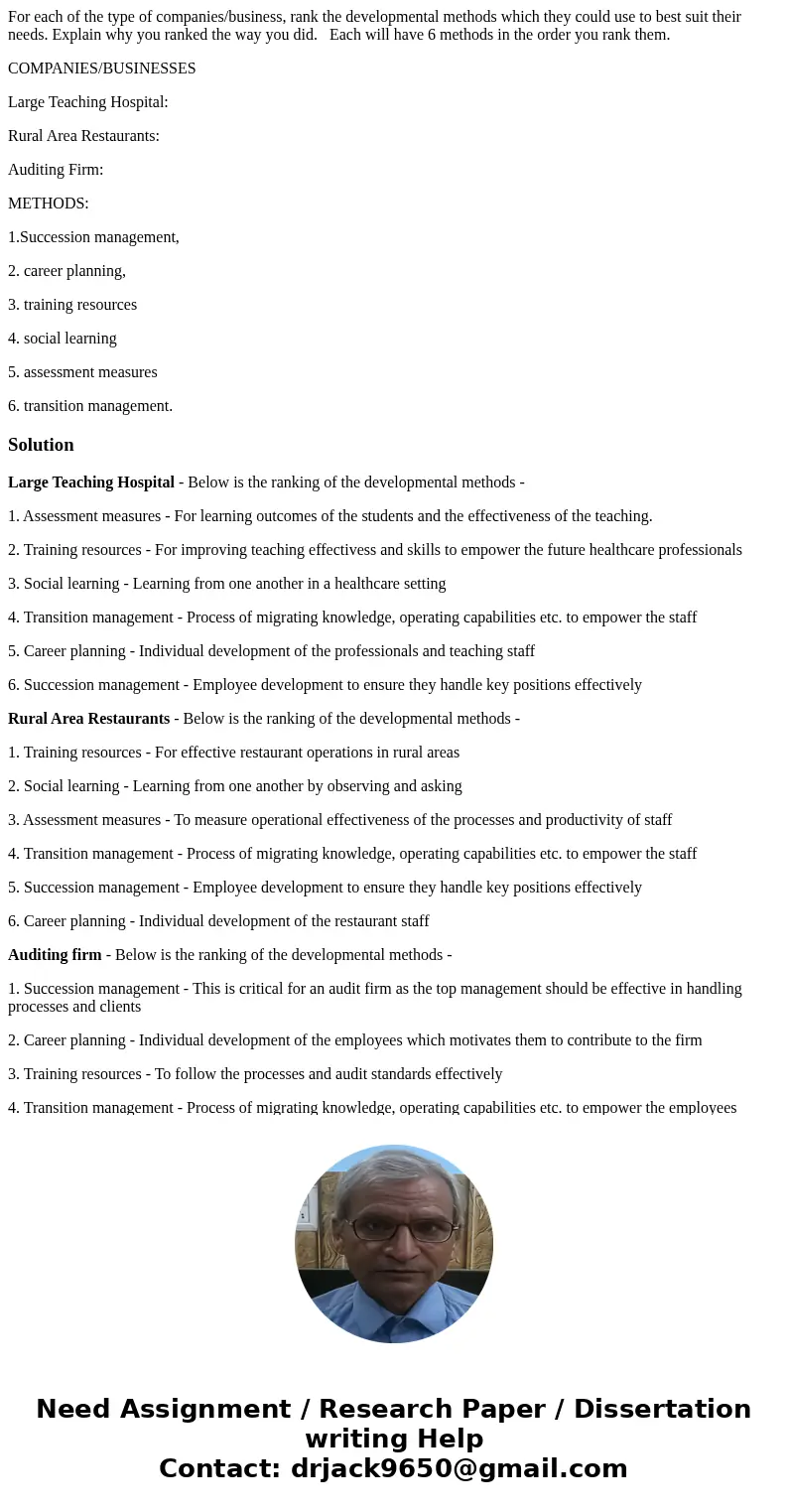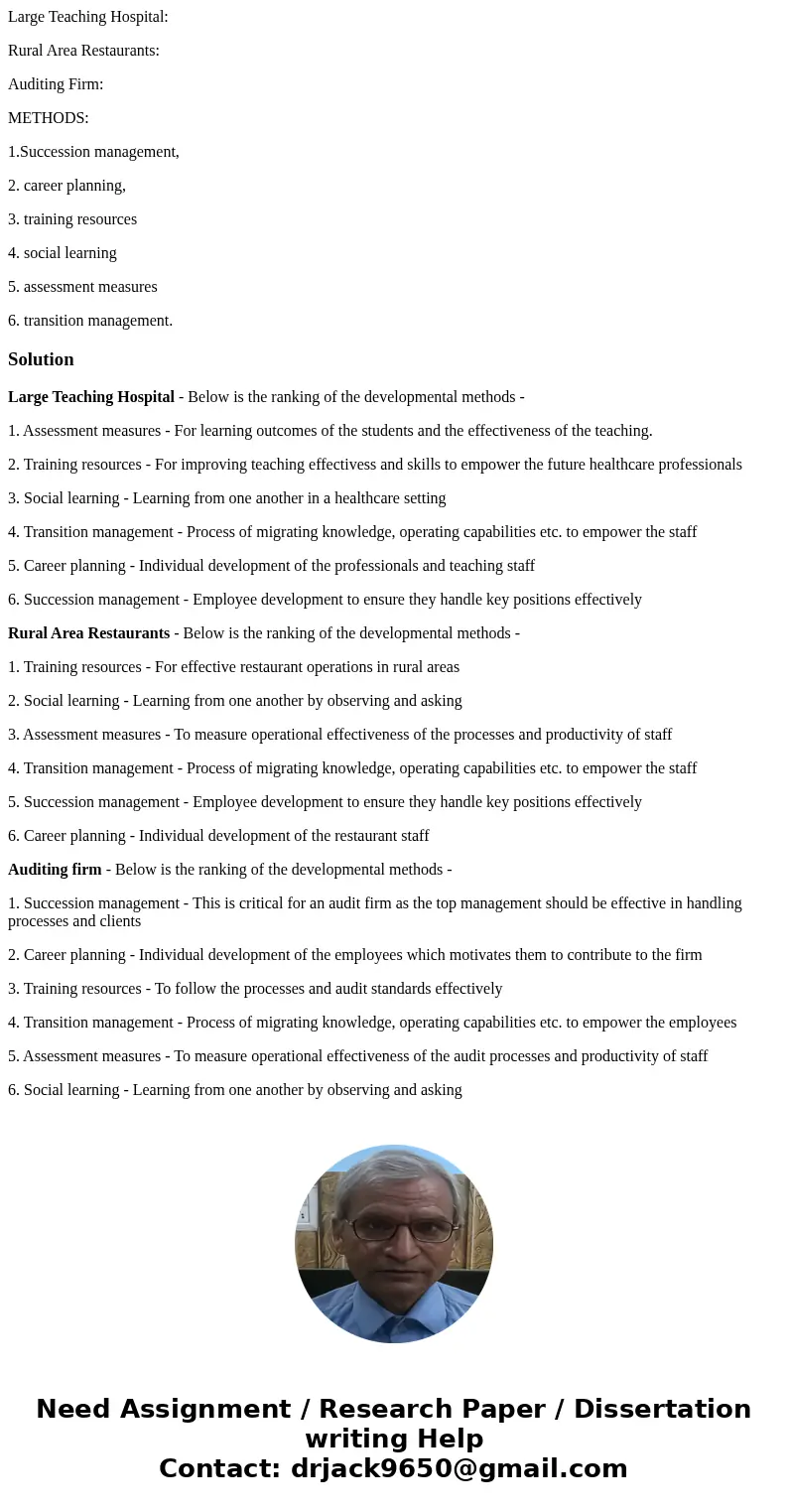For each of the type of companiesbusiness rank the developme
For each of the type of companies/business, rank the developmental methods which they could use to best suit their needs. Explain why you ranked the way you did. Each will have 6 methods in the order you rank them.
COMPANIES/BUSINESSES
Large Teaching Hospital:
Rural Area Restaurants:
Auditing Firm:
METHODS:
1.Succession management,
2. career planning,
3. training resources
4. social learning
5. assessment measures
6. transition management.
Solution
Large Teaching Hospital - Below is the ranking of the developmental methods -
1. Assessment measures - For learning outcomes of the students and the effectiveness of the teaching.
2. Training resources - For improving teaching effectivess and skills to empower the future healthcare professionals
3. Social learning - Learning from one another in a healthcare setting
4. Transition management - Process of migrating knowledge, operating capabilities etc. to empower the staff
5. Career planning - Individual development of the professionals and teaching staff
6. Succession management - Employee development to ensure they handle key positions effectively
Rural Area Restaurants - Below is the ranking of the developmental methods -
1. Training resources - For effective restaurant operations in rural areas
2. Social learning - Learning from one another by observing and asking
3. Assessment measures - To measure operational effectiveness of the processes and productivity of staff
4. Transition management - Process of migrating knowledge, operating capabilities etc. to empower the staff
5. Succession management - Employee development to ensure they handle key positions effectively
6. Career planning - Individual development of the restaurant staff
Auditing firm - Below is the ranking of the developmental methods -
1. Succession management - This is critical for an audit firm as the top management should be effective in handling processes and clients
2. Career planning - Individual development of the employees which motivates them to contribute to the firm
3. Training resources - To follow the processes and audit standards effectively
4. Transition management - Process of migrating knowledge, operating capabilities etc. to empower the employees
5. Assessment measures - To measure operational effectiveness of the audit processes and productivity of staff
6. Social learning - Learning from one another by observing and asking


 Homework Sourse
Homework Sourse